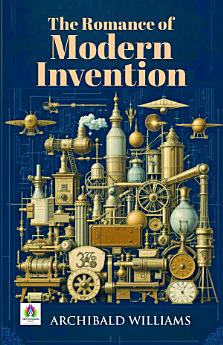The Romance of Modern Invention
About this ebook
From the ingenious contraptions of early civilizations to the groundbreaking technologies of the digital age, Williams presents a comprehensive overview of notable inventions that mark significant milestones in human progress. He illustrates how the wheel, the printing press, and electricity are not simply technical achievements but pivotal turning points in history that influenced thoughts, behavior, and ways of living. The author articulately captures the revolutionary spirit that accompanies each innovation, emphasizing the boundary-pushing nature of human creativity and the collective desire to improve the quality of life.
What sets The Romance of Modern Invention apart is Williams' enthralling storytelling style. He meticulously weaves together facts and anecdotes, painting a vibrant picture of the inventors behind these masterpieces. Readers will meet visionaries whose dreams and perseverance birthed revolutionary creations that challenged the status quo. The lives of these inventors are presented not merely as biographies but as interwoven tales of struggle, ambition, and passion. Williams’ attention to their emotional and intellectual journeys invites readers to empathize with these creators, making their historical contributions feel immediate and impactful.
Moreover, Williams does not shy away from addressing the ethical dilemmas posed by modern inventions. The narrative reflects on the dual-edged nature of technological progress, exploring the consequences of inventions that, while transformative, have also led to societal challenges such as environmental degradation and inequality. Williams encourages readers to consider the responsibilities that accompany innovation, prompting thoughtful discussions about the future trajectory of technology in shaping societal norms and values. Through this lens, he posits that understanding the history of invention is crucial for navigating the challenges of modernization.
The book is rich with illustrations and diagrams, which enhance the reading experience by visually representing complex concepts and inventions. This visual aid makes the history of inventions accessible to readers of all ages, drawing in those who might be intimidated by technical jargon. The engaging layout and thoughtful organization of chapters allow readers to effortlessly traverse the timeline of innovation, making it suitable for both casual readers and those seeking deeper knowledge of the topic.
In conclusion, The Romance of Modern Invention by Archibald Williams stands as a triumphant celebration of human ingenuity and the relentless pursuit of progress. Through compelling storytelling, rich historical context, and thought-provoking reflections on technology's impact on society, this book promises to captivate, inform, and inspire. It is an essential read for anyone fascinated by the intersection of technology and human life. Williams invites readers to appreciate the intricacies of the innovations that have shaped our world, urging them to embrace the possibilities of the future with creativity and responsibility.








